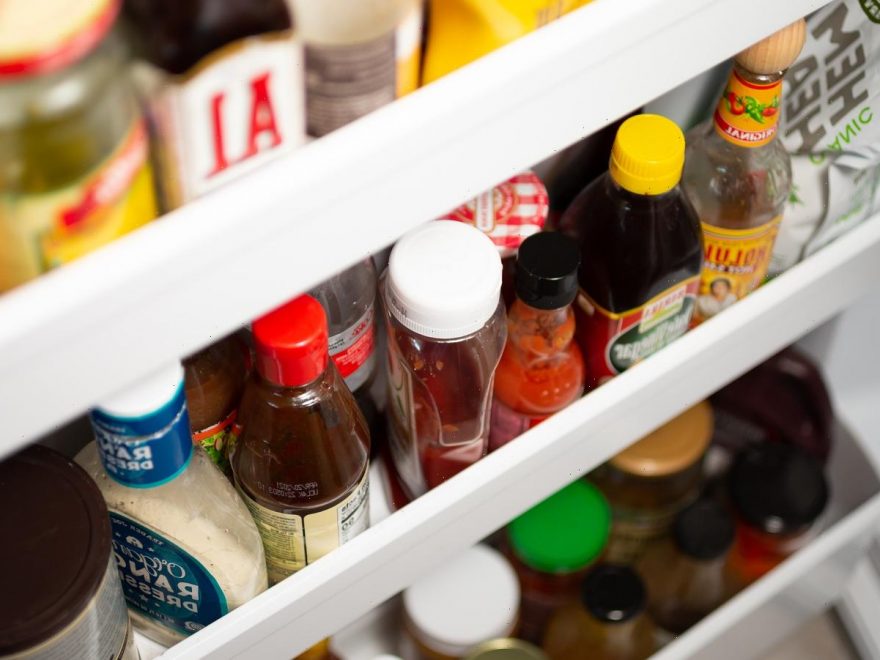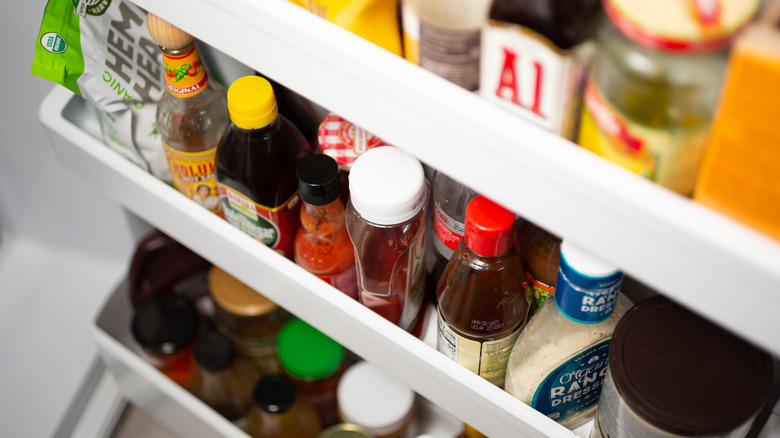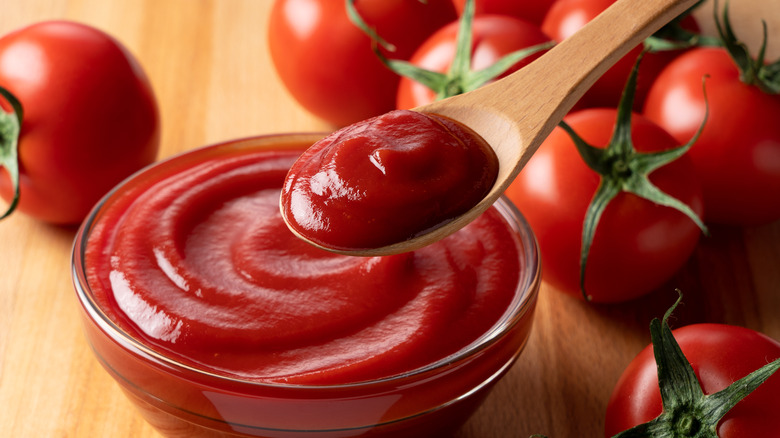Storing condiments is a little bit trickier than you may think. Ask two different people how to store ketchup or mustard, and you’ll get two different answers. At the end of the day, it all comes down to the fridge versus pantry debate.
The condiments sold in stores sit on shelves, but this doesn’t mean you should do the same at home. Some products, such as hot sauce, can be stored in or out of the fridge. Others, however, must be refrigerated after opening. Your best bet is to follow the instructions on the label. Note that homemade mayo and sauces tend to spoil faster than their store-bought counterparts. For this reason, it’s best to keep them in the refrigerator.
Americans waste about one pound of food per person each day, according to a 2018 study published in PLOS One. Many times, food goes to waste simply because it was improperly stored. Condiments are no exception. But which ones should you store in the pantry or cupboard and which ones should go in the fridge? Let’s find out.
What's the best place to store condiments?
Some condiments are shelf-stable until opening, after which you must refrigerate them (via the State of Michigan). These include mustard, salsa, oils, mayonnaise, and canned or jarred ingredients, such as dried tomatoes. The same goes for salad dressing. So, if you buy a few bottles of salsa and open one at home, remember to place it in the fridge. Store the remaining bottles in your pantry.
With a few exceptions, most condiments containing dairy, eggs, or fresh vegetables should be refrigerated. Generally, those with a lot of vinegar, salt, or sugar can be stored at room temperature, as Jennifer Berg, Ph.D. told SELF. Soy sauce, for example, is high in sodium, which acts as a preservative. Likewise, peanut or almond butter contains preservatives and can be stored outside the fridge. Apple cider vinegar is highly acidic, so you can keep it in the pantry.
“Common condiments such as ketchup, mustard, and hot sauce are all regularly kept on the table [in restaurants], so don’t feel the need to refrigerate yours,” says culinary and nutrition expert Lauren Feingold (via Today). Use your common sense, too. For example, if you use ketchup for most meals, then you can probably keep it on a shelf in the kitchen. However, if you only use this product occasionally, it makes sense to refrigerate it. As far as olive oil goes, Feingold recommends storing it in a cool, dark place.
Source: Read Full Article


